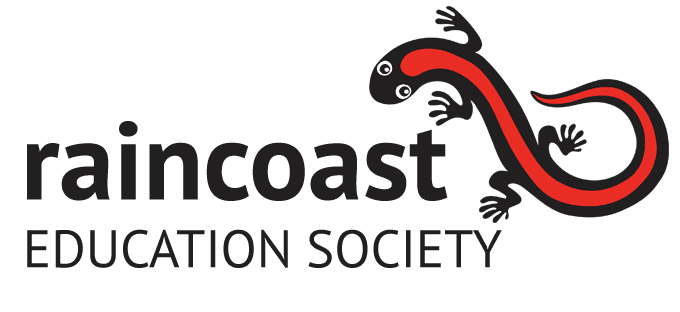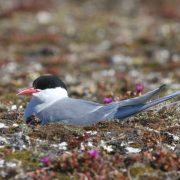2018 Raincoast Speaker Series
The 2018 Raincoast Speaker Series is presented in collaboration with the Uvic Clayoquot Sound Field Semester professors, and other selected keynote speakers. Further events details will be posted shortly.
ANATOMY OF A STORM
Dr. Shannon Fargey
Thursday, Feb 1 @ 7:30pm
Ecolodge Classroom at the Tofino Botanical Gardens
$5 at the door
As everyone on the west coast of Vancouver Island is aware, storms and their associated hazards impact both the physical and human landscapes of a region. To better understand these meteorological features, we need to learn what is going on inside them. Through a combination of in-situ and remote sensing technology, we can better dissect the anatomy of a storm. This presentation will show how new (and old) technologies are helping us better characterize storms in hopes of improving our ability to predict them.
Dr. Shannon Fargey is a physical geographer (Ph.D U. Manitoba) with teaching and researching interests in meteorological and hydrological processes. She joined the Department of Geography at the University of Victoria in 2014 as an Assistant Teaching Professor. Her roles include academic program delivery, and teaching both undergraduate and graduate level courses in the fields of Physical Geography and Geomatics with a focus on field school learning. Her research to date has focused on improved characterization of cloud and precipitation features over mountain regions from the eastern Canadian Arctic to the Rocky Mountains in Alberta.
Shannon is teaching the Coastal Meteorology course (end of Jan-Feb) for the UVic Clayoquot Sound Field Semester in Tofino. For more information on the program, please visit our website at https://raincoasteducation.org/education-programs/uvic-clayoquot-sound-field-semester.
BARKLEY SOUND AT A CROSSROADS: mega projects challenge the values and rights of place
Keith & Bernadette Wyton
Thursday, Feb 15 @ 7:30pm
Ecolodge Classroom at the Tofino Botanical Gardens
$5 at the door
Barkley Sound is a spectacular and thriving marine environment, including the Deer Group Islands, the Broken Group Islands, the Pacific Rim National Park Reserve, and the incredibly productive Sarita River Estuary. Two mega projects (Kwispaa LNG and the Port Alberni Transshipment Hub (PATH), are currently being aggressively promoted in direct opposition to the established planning directives for this area. Barkley Sound, and the communities which call it home, are at a crossroads. Join Keith and Bernadette Wyton to learn more about some of the issues affecting the future of Barkley Sound.
Keith and Bernadette Wyton came to Bamfield in 1979 and have been devoted to Barkley Sound for over 35 years. Bernadette founded and led the Alberni Air Quality Council for 10 years. Keith is currently the Alberni-Clayoquot Regional Director for Bamfield.
INFORMING DISASTER RESILIENCE THROUGH A NUU-CHAH-NULTH WAY OF KNOWING
Dr. Emily Dicken
Thursday, Feb 22 @ 7:30pm
Ecolodge Classroom at the Tofino Botanical Gardens
$5 at the door
Dr. Emily Dicken is the Director of First Nations Coordination with Emergency Management BC. She works professionally and academically to explore decolonization within the field of practice of Emergency Management, with a central focus on understanding colonialism as an unnatural and enduring disaster impacting Indigenous communities. Emily has worked as a practitioner in the field of emergency management since 2006. When not working, Emily can be found hiking in the coastal rainforests with her husband Jeff and their two young sons, Keegan and Bowen.
MYCOHETERTROPHS: PLANTS WITHOUT PHOTOSYNTHESIS
Andy MacKinnon
Wednesday, March 7 @ 7:30 pm
Ecolodge Classroom at the Tofino Botanical Gardens
$5 at the door
Mycoheterotrophs are vascular plants (and perhaps one non-vascular plant) that lack chlorophyll and so can’t manufacture their own sugars through photosynthesis – hence ‘heterotrophs’. BC hosts with many mycoheterotrophic plant species, and many others where at least one phase of their life is dependant on mycorrhizal fungal partners. Most plant guides describe mycoheterotrophs as saprobes – that is, they derive their nutrition from decaying organic matter. This simply isn’t correct – the truth is much more interesting. This presentation will explore the nature and meaning of mycoheterotrophy (and mixotrophy), and illustrate concepts with local examples.
Andy MacKinnon is a forest ecologist who lives in Metchosin British Columbia Canada. Until his retirement in 2015, he worked for the BC Forest Service for three decades, mostly on BC’s coast, where he was responsible for ecosystem classification and mapping and a program of forest ecology research focused on old growth structure and composition, effects of climate change, and BC’s native plants and fungi.
THE NATURAL HISTORY OF HUMAN PREDATORS
Dr. Chris Darimont
Thursday, March 22 @ 7:30 pm
Ecolodge Classroom at the Tofino Botanical Gardens
$5 at the door
How and why do hunters and fishers differ from other predators in nature? What do these differences mean for biodiversity and sustainability? What can wildlife and fisheries management learn from predators? Come learn and discuss these questions and more when we subject our own species to a natural history lens.
Chris Darimont is a wildlife ecologist, evolutionary biologist, and applied conservation scientist. He is a professor at the University of Victoria, where he holds the Raincoast Chair in Applied Conservation Science. Although his fieldwork often focusses on the mammalian predators of coastal BC, his research also includes examination of the planet’s most influential ‘super predator’, human beings. He is also a deer hunter and bad fisherman.
SEA OTTERS AND COASTAL ECOSYSTEMS: USING MODELS TO EXAMINE TRADE-OFFS AND MANAGEMENT ALTERNATIVES
Edward Gregr
Thursday, April 12 @ 7:30 pm
Ecolodge Classroom at the Tofino Botanical Gardens
$5 at the door
Sea otters continue to recolonize coastal British Columbia at the expense of invertebrate fisheries and coastal communities. What are the trade-offs between ecosystems with and without sea otters? How can we estimate them? This interdisciplinary talk will introduce the models available to answer such questions, and evaluate various aspects of the changing coastal ecosystem, including how these changes impact the benefits people obtain from coastal waters. The potential for local sea otter management to increase both the abundance of coastal resources, and their accessibility to local communities, will also be discussed.
Edward Gregr is a Ph.D. Candidate in Resource Management & Environmental Studies (RMES) at the University of British Columbia. As part of a large, multi-disciplinary study (Coastal Ecosystem Services amongst Trophic Cascades) to investigate the changing ecosystem on the west coast of Vancouver Island (WCVI) in British Columbia, Canada, his work focuses on the development of spatially explicit models of representative ecosystem services, and how they are influenced by various management scenarios.
BIRDS OF THE WEST COAST: A LOOK AT NATURAL HISTORIES AND DIVERSITY IN TOFINO
Mark Maftei
Friday, April 27 @ 7:30pm
Darwin’s cafe at the Tofino Botanical Gardens
$5 at the door
The west coast of Vancouver Island consists of several unique habitats which collectively host one of the most diverse avian communities in Canada. From old-growth forest dwellers like the Pacific Wren to open ocean wanderers like the Black-footed Albatross, from year-round residents like the Black Oystercatcher to trans-continental migrants like the Western Sandpiper, the remarkable birds of this region reflect the richness and complexity of the overlapping marine and terrestrial ecosystems along our coast. The talk will serve as an introduction and overview to the relationship between birds and their environment, with examples of the amazing adaptations and life histories of some of the species which call the west coast home!
Mark Maftei’s passion for seabirds has taken him around the globe, from Ellesmere Island in the Canadian High Arctic to South Georgia Island in the Southern Ocean. Although he specializes in Arctic species, Mark’s recent work has focused on learning more about some of BC’s most interesting and enigmatic seabirds including rhinoceros and Cassin’s auklets – two species which breed and winter in our waters. Mark is currently the Executive Director of the Raincoast Education Society in Tofino, BC.



